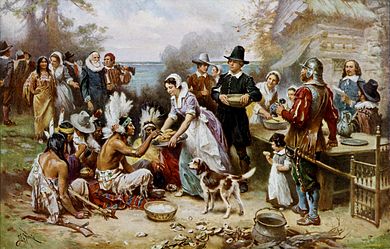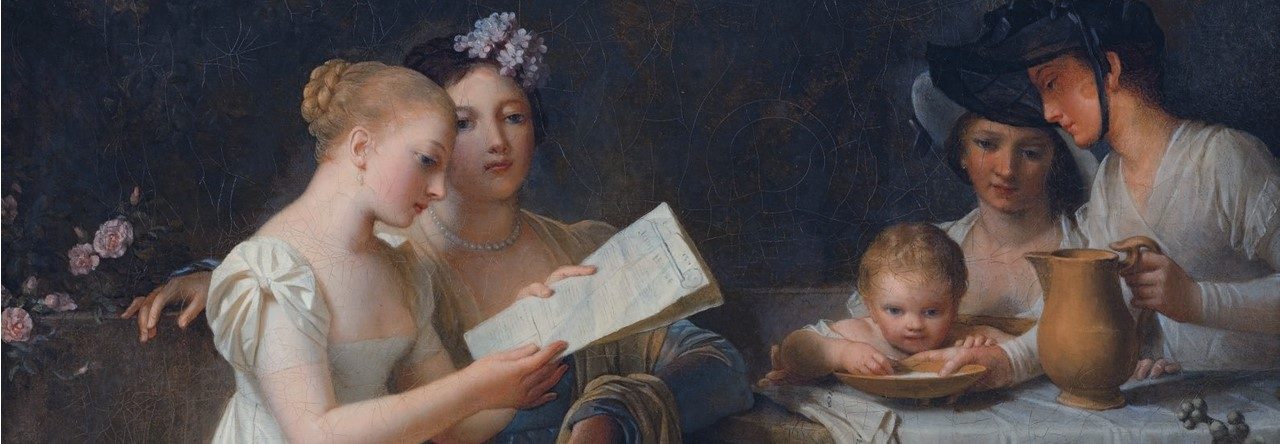Dear Readers,
One of our correspondents, Mrs. B-W, has been visiting relatives in the city of Boston in the former colonies. She sends us this fascinating tidbit about a local tradition.

Dear Mr. Clemens,
I have very much enjoyed my visit with my American cousins. Boston is a lovely and propsperous town with a cultured society such as I never would have expected. We’ve had no end of balls, routs, salons, concerts and informative lectures. Politics is much discussed, and Bostonians do not hesitate to express their opinions and argue when they differ. Such contention did not prepare me for the custom of Thanksgiving Day. A day that celebrates the good fortune and blessings bestowed by God upon the former colonies.
When I first heard of the event, my cousin expressed surprise that I did not know of it and gave me some of the writings from my ancestor, one William Bradford of Plymouth Plantation. I found these texts informative not just of the celebration, but of an American cultural element no usually seen by English visitors. Mr. Bradford describes the inciting events for this Thanksgiving celebration as follows. words follow:
They began now to gather in the small harvest they had, and to fit up their houses and dwellings against winter, being all well recovered in health and strength and had all things in good plenty. For as some were thus employed in affairs abroad, others were exercised in fishing, about cod and bass and other fish, of which they took good store, of which every family had their portion. All the summer there was no want; and now began to come in store of fowl, as winter approached, of which this place did abound when they can be used (but afterward decreased by degrees). And besides waterfowl, there was great store of wild turkeys, of which they took many, besides venison, etc. Besides, they had about a peck a meal a week to a person, or now since harvest, Indian corn to the proportion. Which made many afterward write so largely of their plenty here to their friends in England, which were not feigned but true reports.[27]
And afterward the Lord sent them such seasonable showers, with the interchange of fair warm weather as, through His blessing, caused a fruitful and liberal harvest, to their no small comfort and rejoicing. For which mercy, in time convenient, they also set apart a day of thanksgiving … By this time harvest was come, and instead of famine now God gave them plenty … for which they blessed God. And the effect of their particular planting was well seen, for all had … pretty well … so as any general want or famine had not been amongst them since to this day.[35]
It would seem to me, Mr. Clemens and dear readers that such a celebration is well worthy of emulation. I hope to have more historical items of interest to pass along in the future.
Respectfully,
Mrs. B-W


Leave a Reply